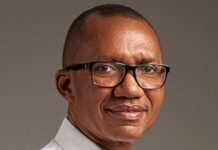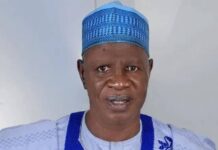Deep Thought with Othman
As of the time I am writing this piece, Friday, March 26th, 2021, the current population of Nigeria is 209,840,702. This population estimate is based on Worldometer (software application) elaboration of the latest United Nations data.
In the last fifty years, the Nigerian population has escalated at a geometric proportion. Data available in the 2012 revision of the World Population Prospects by the Population Division of the Department of Economic and Social Affairs of the United Nations Secretariat indicates that the Nigerian population in 1950 was only 37,860,000 compared to 159,708,000 in 2010.
The proportion of children below the age of 15 in 2010 was 44.0% while between 15 and 65 years was 53.2% and above 65 years was only 2.7%. Nigeria has an average birth rate of 850 babies per hour and an average death rate of 280 people per hour giving a population increase of 570 people per hour, 13,491 people per day, and 4.92 million people per year.
At this rate, Nigeria will reach 263 million by 2030 and 401 million by 2050, which will make the country to be the third most populous in the world from its current position of seventh. In the year 2050 (30 years from today), the population of 201 million people will be of young men and women of 30 years of age and below while 88 million people will be of age between 30 and 45 years.
This means that in the year 2050, about 72% of the Nigerian population will be below the age of 45 years, which will be a virile, energetic, and active population. The Nigerian population explosion with youth being the majority can be very delicate. The country can be turned to Eldorado by transforming the teeming population to human capital. Reversely, the country can go into self-destruction with calamitous consequences of destabilizing the African continent, which may extend to Europe and America. Yes, we have recently witnessed mass migration into Europe. Which direction is Nigeria moving to?
The development of human capital is a sine qua non for a country’s socio-economic and political transformation. Globally, it was generally agreed that human capital formation is the most virile causal factor responsible for the impressive performance of the economies of most of the developed and newly industrializing countries.
The human capital formation in these countries entails a consistent increase in knowledge, skills, and capabilities acquired through the education and training of all the people. Improvement in two key sectors; health and education targeting youth are required for human capital development. There is a strong correlation between investment in education and health sectors; and productivity, the economic prosperity of a nation. What is the Nigerian scorecard in these two key sectors?
In the year 2001, Heads of State of African Union countries met in April 2001 at Abuja and pledged to set a target of allocating at least 15 per cent of their annual budget to improve the health sector. The pledge was tagged “Abuja Declaration”.
Similarly, in the 2015 report of the United Nations Educational, Scientific and Cultural Organisation (UNESCO), it was recommended that 15 to 20 per cent should be allocated to education in the national budgets of developing countries, like Nigeria. This was contained in the 2015 report titled ‘Education for All 2000-2015: Achievements and Challenges’.
In the last 20 years, Nigeria has never allocated up to 10% of its annual budget to either education or the health sector. For instance, the percentages of annual budgetary allocation of the Federal government to education from 2017 to 2020 were 7.4%, 7.04%, 7.05%, and 6.7%, respectively.
In the same vein, the health sector was allocated 3.95% and 4.52% in 2018 and 2020, respectively. The states government also made similar paltry allocations to these important sectors.
Perhaps, the kind of lip service we are paying to these key sectors depicted the gloomy picture of Nigeria in the 2018 Goalkeepers report. The report indicated “Nigeria will have 152 million people in extreme poverty out of a projected population of over 400 million by the year 2050. Going by this figure, it means that Nigeria will represent about 36% of the total number of people in ‘extreme poverty Worldwide”.
The “Goalkeepers Report” is an initiative of the Bill and Melinda Gate Foundation (BMGF). It provides an annual assessment report of how countries across the globe are making efforts towards meeting Sustainable Development Goals (SDG) targets. It acts as a mirror for the countries to look at their progress in their efforts of achieving SDGs. Those who fared well are celebrated as heroes who made a difference towards attaining the targets while those with below-average performance are similarly shown what they should do to improve.
From the foregoing discussion, it is clear that governments at both Federal and State levels have woefully failed to improve the two key sectors for human capital development. While the government is the major player in the process of developing human capital but the entire citizenry has an equally critical role in fast-tracking and facilitating positive change of making high population a virtue rather than a curse.
Today, China is the most populous country in the world but has the most vibrant and dominating economy. How can we change Today’s Nigerian picture of hopelessness and squalor to economic prosperity and greater hope? How do we individually contribute, as youth, parents, teachers, civil servants, etc to prevent the detonation of the imminent “time bomb”, which may consume all of us? It is certainly not impossible.
To be concluded next week.
Prof Othman writes from NAERLS, ABU Zaria and can be reached via email: mkothman@gmail.com.
Follow the Neptune Prime channel on WhatsApp:
Do you have breaking news, interview request, opinion, suggestion, or want your event covered? Email us at neptuneprime2233@gmail.com





